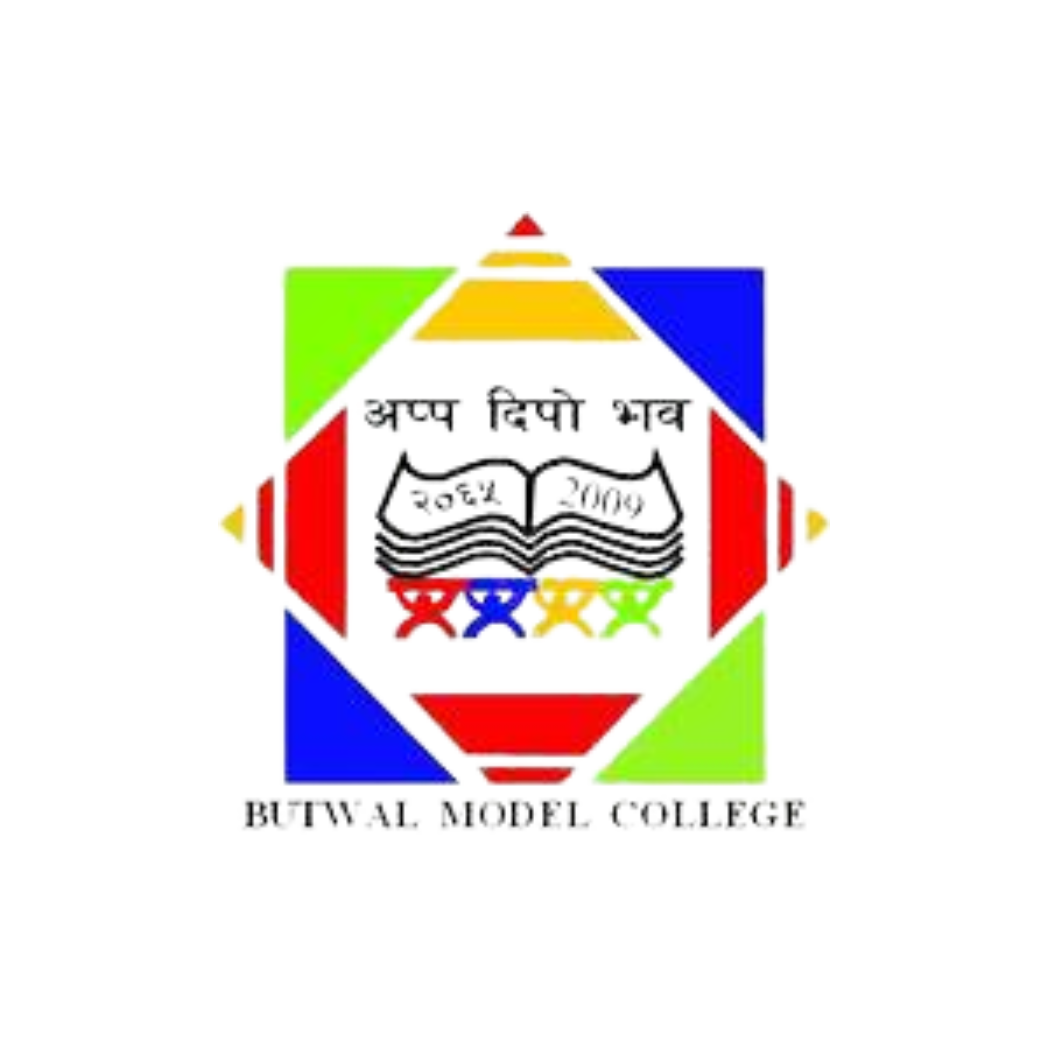-Laxman Bhatta, Central Department of English and Kathmandu Model College,TU, Nepal-
Abstract
This paper aims to explore how Naipaul articulates dislocated and disjointed sensibility of the individuals drifting in diasporic location. Presenting precarious situatedness between ancestral and adopted homeland, Willy, the anti-hero of Magic Seeds, represents the problems of post-coloniality such as difficulties in discovering roots, detecting
one’s own history and finding an authentic identity. By taking theoretical insights on diaspora identity and hegemonic relationships in identity formation, this paper reveals that Naipaul snubs diasporic space regarding it to be a threshold to estrangement and alienation.
Keywords: angst, dislocation, double-ness, estrangement, identity, spatiality
Descending from a family of Hindu Indian immigrants living in Trinidad and educated in England, V.S. Naipaul has gained much popularity as a diasporic writer. Naipaul possesses a penetrating analysis of the themes of alienation and exile with stylistic virtuosity and psychological insight. He often relies on autobiographical materials derived from his childhood in his native Trinidad but largely talks of the impact
of the colonial enterprise on the subjectivity of the colonized. In this regard, Karl Miller argues, “Both his fiction and nonfiction were to prove, by and large, strongly autobiographical in tendency, though the distressed romantic solitary who performed some of the earlier journeys was in time to efface himself, to make way for informants, skillfully and interviewed and assessed” (xi). Naipaul persistently articulates the experiences of diasporic characters who are strangers not only to the places they move in, but also they are aliens to themselves. This disturbing feeling of homelessness is covertly reflected in Magic Seeds (2004).
Diasporic individuals are emotionally attached to their homeland, yet yearn to belong to their current places of residence. They roam psychically between two worlds and as a result both their root culture and their host culture negate their belonging to either location. This condition of being homelessness is associated further with alienation.
Even though these individuals strive to integrate to new cultural setting, they remain connected to their natal customs, traditions, and cultural practices. Magic Seeds brings to light such issues faced by exilic communities and reflects upon their attempt to relocate to original homeland.
To become in an exile is to be displaced, set adrift, and detached. Yet this is not simply to inhibit a dead zone of loss and isolation, for the expatriation is also a productive space for expanding new forms and new ways of organizing experience, creating new affiliations, associations and communities for developing new identities. John M. Sorenson remarks, “As exiles create new diaspora communities, they typically engage in communal reconstruction of their experience and jointly formulate specific forms of identity based on ethnic, regional, or national affiliations” (201). So, expatriate communities not only express the sense of loss and estrangement but also attempt to reformulate new identity. The sense of displacement and dislocation experienced by the diasporic community is invited by migrancy, a reigning trope of the contemporary world. In “Günter Grass”, Rushdie asserts, “We all cross frontiers; in that sense, we are all migrant peoples” (279). While that may be true on some intangible level, still different people cross them differently, and thus all are not migrants in the similar way. Experience of migration and refection of migrant experience differ based on the positionality of every immigrant.
Magic Seeds, a sequel to his earlier novel Half a Life (2001), revolves around diasporic sense and sensibilities of Willie Chandran. He appears to be a drifter struggling for ‘self’ and floats from India to England, England to Africa, Africa to India, and then back to England again, in quest of his stable selfhood but to no avail. His search for authentic identity gets inexhaustibly perplexed and he falls into the abyss of perpetual exile. Alan Davis assesses, “If Half a Life is a Bildungsroman, even as its protagonist remains (as the title suggests) half-formed, still a drifter, then Magic Seeds is Naipaul’s gift to Willie” (340). WhenHalf a Life ends, Willie resides in Africa in Ana’s house as her London man. Since he has forgotten his root, he does not want to live there without identity. When Willie comprehends that he has wasted much of his life, he then goes to Berlin to stay with Sarojini, his sister. Magic Seeds opens with Willie thinking that he cannot stay in Berlin with his sister, “Another world. He was living there in the half-and-half way with his sister Sarojini. After Africa it had been great refreshment, this kind of protected life, being almost a tourist … it began to end the day Sarojini said
to him, ‘you’ve been here for six months. I may not be able to get your visa renewed again …. You’ve got to start thinking of moving on” (1). Thus, moving on becomes his existential plight.
Diasporic individuals attempt to retain a collective memory of their natal land through various means. As stated by William Safran, diasporants are “committed to the restoration of ‘the original homeland’ and continued in various ways to ‘relate to that homeland” (83). Willie also tries to associate himself with his natal land but fails. The son of a Brahmin, and a colonizer’s favorite, Willie forsakes his father’s established life at a temple. He makes a trip to England, marries Ana, a Portuguese settler, and tries to settle with her in Mozambique. But he returns to Berlin where he is sheltered momentarily by his sister Sarojini, before he becomes a land-rights activist in India. While involving in activism, he was imprisoned and tortured. After his release,
he returns to England and works in an architecture firm. At this juncture, Willie internalizes the plight of displacement. At this point, he feels that mimicry of the connection and its pretenses are the only shelters for the exilic communities. This sense of mimicry makes Willie restless.
Berlin appears to be a great respite for Willie after the bleak time in Africa, but his visa is expiring soon. Consequently, his intent of keeping the situation under his grip
is not fulfilled. Willie is forced to face the reality of his existence but the only answer he gives to his sister is, “I don’t see what I can do. I don’t know where I can go … I was always someone on the outside. I still am. What can I do here in Berlin?” (1-2). Identity experienced by Willie resembles to Antonio Gramsci’s insights on identity in an environment formed by hegemonic forces:
When one’s conception of the world is not critical and coherent but disjointed, one belongs simultaneously to a multiplicity of mass human groups … The starting point of critical elaboration is the consciousness of what one really is, and is ‘knowing thyself’ as a product of the historical process to date which has deposited in you an infinity of traces, without leaving an inventory. (37)
Identity as experienced by Willie is sometimes exploitative, often brutal and impulsive. The sense of dislocation is not reduced even after his departure from Africa, and Berlin also does not appear to be the city of his comfortable settlement. Even after arriving in Berlin, Willie remains uncertain and confused.
Willie feels an insatiable thirst for home which he has developed after his marriage to
Ana and after an obscure life in Africa:
It had seemed natural to him twenty and more years ago, at home, to want to hide. Now all that has followed from that wish seemed to him shameful. His half-life in London, and then all his life in Africa, that life when he was permanently in semi-hiding, gauging his success by the fact that in his second-class, semi-Portuguese group he didn’t particularly stand out, and was’ passing’ all that life seemed shameful. (10)
Willy thus manifests exilic sensibility. He is, indeed, a drifter, a perpetual wanderer looking for home everywhere and finding it nowhere.
Willie spends six months in Berlin with his sister Sarojini but he frustrates her with his idleness. Sarojini pushes Willie to join Kandapalli’s rebel army, which has succeeded in taking over a rural India. This revolutionary movement intended to emancipate the poor low-caste Indian villagers from the clutches of the land owners. Willie thus undertakes a reverse journey from Berlin to India. His sister’s inspiring remark to him to go to the “real place with real people” (16) is indicative of the existential tremors of rootlessness and homelessness. The time that Willie spent in Berlin was the time of reconciliation and revelation. It let him relate with himself in more authentic way. He saw India again after more than twenty years:
India began for him in the airport in Frankfurt, in the little pen where passengers for India were assembled. He studied the Indian passengers there
- He saw India in everything they wore and did. He was full of his mission, full of the revolution in his soul, and he felt a great distance from them. India began to assault him, began to remind him of things he thought he had forgotten and put aside, things which his idea of mission had obliterated; and the distance he felt from his fellow passengers diminished. … He felt
something like panic at the thought of India he was approaching. …He felt ‘I thought of the two worlds, and I had a very clear idea of the world to which I belonged. But now, really, I wish I could go back a few hours and stand outside the Pat- rick Hellman shop in Berlin, or go to the oyster and champagne bar in the KDW 64. (25-26)
Willie complies as such a commitment to revolution might bring meaning in his life. After much adversity, he is taken to a rebel training camp but the movement turns out to be vague and instead of leading to any sense of fulfillment it drags him into a sense of homelessness.
Willie joins the guerrillas and lives in the jungle with them but a number of questions arise in his mind about the people around him. He speculates what caused those guerillas leave the outer world and enter that strange chamber in their late thirties or early forties. After years of perilous life in the jungle, Willie realizes that he is losing himself, and thinks of surviving. Willie says, “I’ve forgotten myself. Now I’m truly lost. In every way I don’t know what lies ahead or behind. My only cause now is to survive, to get out of this” (125). Eventually, he escapes together with another absconder of the movement and he surrenders to the police. He is given a ten-year sentence, but Willie is freed after six months due to the intervention of his sister Sarojini and his friend Roger, a lawyer, whom Willie met when he was in London. After his release, Willie is again bound for London. Back in London, Willie comes to a practical maturity, “It is wrong to have an ideal view of the world. That’s where the mischief starts. That’s where everything starts unraveling” (293). On the way to that maturity, Willie is still not being at home anywhere but looking for home.
At this juncture, Willie seems to be a part of Arjun Appadurai’s ‘ethno-scape: “The landscape of persons who constitute the shifting world in which we live: tourists, immigrants, refugees, exiles, guest workers and other moving groups of individuals”
- who make up the instabilities within the seemingly stable global system. This is confirmed in the very beginning of Naipaul’s novel when the narrator states: “It had begun many years before, in Berlin, another world. He was living there in a temporary, half and half way with his sister Sarojini. After Africa it had been a great refreshment, this new kind of protected life being almost a tourist, without demand and without anxiety” (1).
Leading the life of a gypsy, Willie enjoys this status of a tourist. In the guerrilla movement that he joined in India, he has to take up the task of a courier because the point about a good courier is that he has to look fine everywhere. Willie represents the fragmented culture and displaced individual for whom ‘Home’ remains just a far cry. During his entire life, Willie keeps seeking for his roots. He says, “It is the one thing I have worked at all my life, not being at home anywhere, but looking at home” (74). He experiences reiteration of dislocation, restlessness and rootlessness wherever he reaches. His predicament is characterized by recurring displacement, disenfranchisement and dispossession.
Even while perpetually moving to different places, Willie feels unending insecurity. From the stance of Berlin, Willie associates his time in Africa with frailty: “I had begun to feel that because of my insecurity – the in-security I had been born into, like you – I had yielded too often to accidents, and that these accidents had taken me further away from myself. When I told my wife [Ana] I was leaving because I was tired of living her life, she said something strange. She said it wasn’t her life either” (115).
Sarojini provokes in the service of political causes. But, as soon as Willie joins the guerillas in the rural India, he finds that he is not in the right place:
When I went out to Africa … I never wanted to stay. I thought something was going to happen and I would never unpack. Yet I stayed for eighteen years. And it was like that when I joined the guerrillas. The first night in the teak forest, it was too unreal. I wasn’t going to stay. Something was going to happen and I was going to be liberated. But nothing happened, and I stayed seven years. (178)
Willie’s desire to find a secure place to be in remains unfulfilled even after his return to rural India as an activist. He starts feeling restless and agitated.
Setting the story in former colonies and metropolitan centers with a view to problematizing the impact of dislocation and revealing how these spaces deny any association to postcolonial migrant individuals. With reference to Willie, Naipaul describes how the pieces of the ‘self’ die, “[he] felt … the beginning of old grief. But then he thought, ‘I have been there. I have given part of my life and I have nothing to show for it … I must let that part of me die … I must understand that big countries grow or shrink according to the play of … forces that are beyond the control of any one man. I must try now to be only myself” (176-177). Willie’s failure to associate himself with either place or cause or family results from the exclusionary practices associated with globalization.
In prison Willie has the opportunity to reflect upon his sister’s revolutionary sentiments: “though her talk never ceased to be about injustice and cruelty and the need for revolution, though she played easily with the tableaux of blood and bones on five continents, she was strangely serene with … her easy half-and-half life” (8-9). He reflects later on his own time as a revolutionary in the Indian jail: “I am surrounded here by a kind of distress I don’t know how to deal with ….We talked about their
oppression, but we were exploiting them all the time. Our ideas and words were more important than their lives” (167). Naipaul, thus, demonstrates the processes by which people become hybridized and acquire disruption, displacement, conflict and fluidity of identity.
Willie is mission-educated in India, which distances him from the milieu of pre-independent India. After moving from England to Africa and his marriage with Ana, a colonial Portuguese woman, Willie shifts to Germany to stay with his sister, Sarojini. Sarojini, on the other hand, leaves her father’s ashram with her German lover, regrets her armchair activism in Berlin, and returns to the ashram, only to be frustrated by its
impossibilities. Later, she returns to Germany, disillusioned by her meaningless life and abandonment by her partner. In a letter, she writes to Willie, “I am not too happy with what I have done, though every-thing was always done with the best of intentions. It is awful to say, but I believe I have sent many people to their doom” (159). Willie, indeed, is the creature at the edge attempting to resist the hegemonic discourses associated with globalization. He is pushed to various locations but fails to find home and feels displaced and dislocated.
Contrary to Bhabha’s idea that migrancy and hybridity offer rich intellectual possibilities, Magic Seeds reflects on the impossibility for the migrants to belong to anywhere. Despite their Western education, both Sarojini and Willie are prone to denial and rejection. Sarojini and Willie are aware of the fact that their host countries offer them sanctuary yet reject them on the basis of racial identity. Neither Willie nor Sarojini personifies the “uncritical gregariousness” (101) which Abdul R. JanMohamed characterizes as part of the disposition of the immigrant to a new country. Stripped from participation in the adopted culture, they are obliged to situate themselves on the border. Yet, as JanMohamed points out:
In theory, and effectively in practice, borders are neither inside nor outside the territory they define but simply designate the difference between … interiority and exteriority they are points of infinite regression …Thus, intellectuals located on this site are not, so to speak, ‘sitting’ on border; rather they are forced to constitute themselves as the border, to coalesce around it as a point of infinite regression. (103)
The infinite regression takes the shape of the inability of Willie to be at home even in India. He is alienated from himself in terms of personal choices and the categories offered to him in metropolitan centers. His colonized self is no longer acceptable; the practices of colonization remain in evidence after the decline of empire. Yet by laying claim to the ties of empire, and by the denial of that claim by the metropolitan center, he holds a mirror to the hypocrisy of former colonial powers who deny agency in displacing people. Willie is favored by colonial power through the education provided by missionaries, but becomes redundant in a globalized world. Forging a new identity is therefore inevitable aspect of his existence. A new form of community of what Bhabha terms the unhomely, a new internationalism, a gathering of people in the diaspora, “To live in the unhomely world, to find its ambivalences and ambiguities enacted in the house of fiction, or its sundering and splitting performed in the work of art, is also to affirm a profound desire for social solidarity” (The Location of Culture 26-27). However, this creative possibility is interrogated in the novel, since the possibilities for another life become even more limited in the global village.
Host countries for the diasporic characters function as shelter, refuge, and prison, and both Willie is aware of his futility in the global metropolis. Willie, instead of claiming that he has paid for access, as part of the world colonized by Britain and the European powers, begins to perceive how blank the center is. In order to exist there, it is expected that he should create a persona for himself and he is referred to as “a pioneer of modern Indian writing” (174).
Willie carries India within him and is thus “an exile in the weak sense, that is, a subject who always belongs to his home culture in spite of, indeed because of, a circumstantial and temporary alienation” (Jan Mohamed 99). Returning to London after many years, Willie thinks, “I must try now to be only myself” (177) but living there also stirs the old grief. He starts thinking his life has been a series of surprises and has no control over things. For him, his life was “a form of drift” (179) because he could not see what was there left for him to do.
When Willie arrives in Africa and returns to Europe after eighteen years, he sees:
The streets of the center were everywhere crowded, so crowded that sometimes it was not easy to walk. There were black people everywhere, and Japanese, and people who looked like Arabs. He thought, ‘There has been a great churning in the world’ … He felt a great relief. He thought, ‘The world has been shaken by forces much bigger than I could have imagined’. (196)
Noticing all these changes, Willie feels relived thinking that he did not have to join anybody and could celebrate what he was and what he had become. But gradually his mood of relaxation got abated and he began to be bored by the routine he had fallen into.
Once again, Willie starts to get entangled into restlessness. There is little he finds he wants to do in London. His new way of looking no longer surprises him. He feels, “To see it too often was to strip it of memories, and in this way to lose precious pieces of himself …and in the big cities he began to wonder, as he had wondered in the forest and in jail, how he was going to make the time pass” (197). The novel thus demonstrates homelessness, displacement, and exile as experienced by migrants like Willie.
Hence, Naipaul in the novel reflects on the experience of exile and the consequential emotional displacement. Willie, a serial emigrant, keeps searching for his roots and moving from one place to another but belongs nowhere. The novel thus, focusing on Willie’s character, sheds light on expatriate sensibilities and estrangement and alienation that he experiences wherever he goes. Willie, a man forever in restless pursuit of his own elusive essence, ultimately feels: “It’s wrong to have an ideal view of the world. That’s where the mischief starts” (294). After coming back to London, Willie becomes alone and once again without direction and gives such remarks.
Naipaul, thus, shows how Willie has become only a drifter preferring to move away from what he had known, where he might fetch up and what form his life would take. Even after spending his childhood and adolescence in India, three years in London, eighteen years in Africa, seven years in rural India with the rebels and once again returning to London, he perceives no pattern, no thread in his life. He just becomes a floater wandering into multiple spaces seeking fixity. He straddles in-between regression and progression, dislocation and relocation. This process of perpetual
move between two states of dislocation and relocation compels him to interrogate the sustainability of an individual in such a situation. Willie’s exilic consciousness not only disconnects him from his roots, but also polarizes his existence, which straddles between natal land and exile.
Works Cited
Appadurai, Arjun. Modernity at Large: Cultural Dimensions of Globalization.
University of Minnesota Press, 2003.
Bhabha, Homi K. The Location of Culture. Routledge, 1994.
Davis, Alan. “Road Trips.” The Hudson Review, vol. 58, no. 2, 2005, pp. 344–351, JSTOR, www.jstor.org/stable/30044783. Accessed 9 Nov. 2022.
Gramsci, Antonio. Selections from the Prison Notebooks of Antonio Gramsci, edited and translated by Q. Hoare and G. Nowell-Smith. Lawrence & Wishart, 1971.
JanMohamed, Abdul R. “Worldliness-without-world, Homelessness as Home: Toward a Definition of the Specular Border Intellectual.” Edward Said: A Critical Reader, edited by Michael Sprinkler. Basil Blackwell, 1992, pp. 96-120.
Miller, Karl. Introduction. A House for Mr. Biswas, edited by Karl Miller. The Millennium Library, 1995, pp. vii-xxiii.
Naipaul, V. S. Magic Seeds. Picador, 2004.
Rushdie, Salman. “Günter Grass”. Imaginary Homelands: Essays and Criticism, 1981-1991. Granta, 1991, pp. 273-81.
Safran, William. “Diasporas in Modern Societies: Myths of Homeland and Return.” Diaspora, vol. 1, no.1, spring 1991, pp. 83+.
Sorenson, John M. “Essence and Contingency in the Construction of Nationhood: Transformation of Identity in Ethiopia and Its Diaspora”. Diaspora: A Journal of Transnational Studies, vol. 2, no. 2, 1991, pp. 201-28.





















